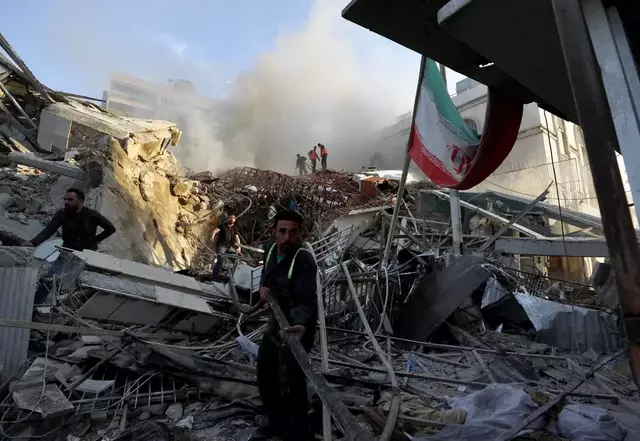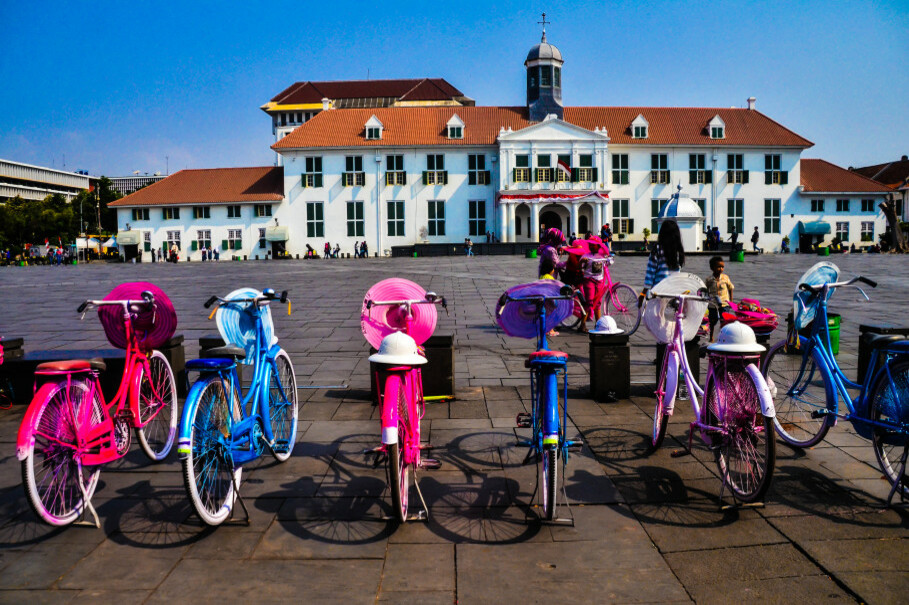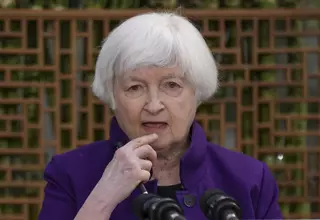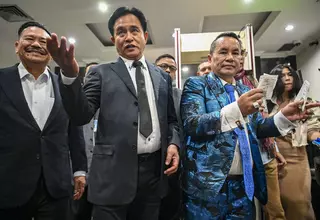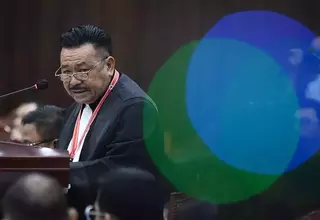Indonesian Economy More Resilient to External Shocks, but More Work Needed: AMRO
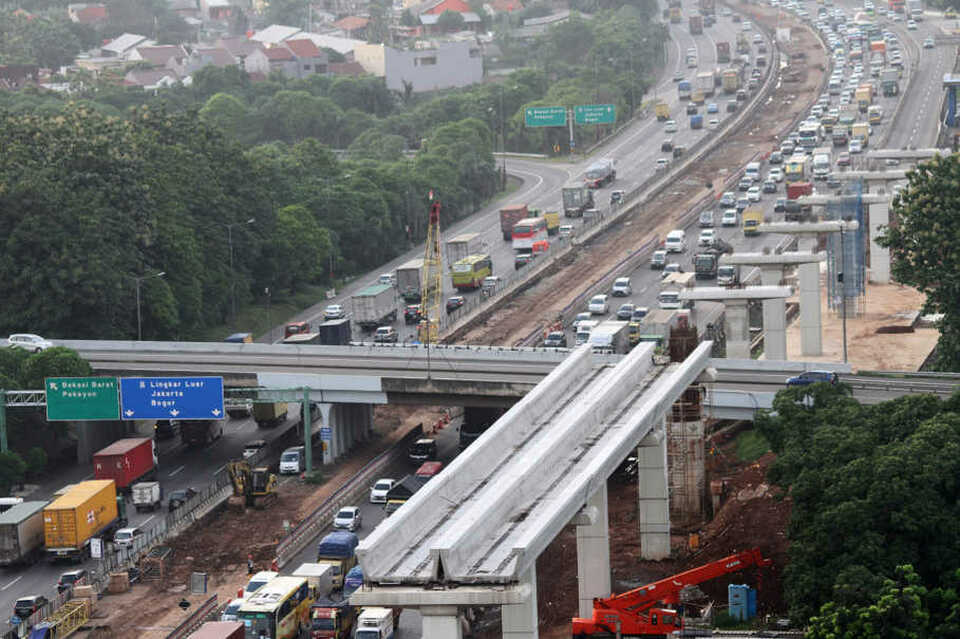
Jakarta. The United States Federal Reserve raised its interest rate for the second time this year on Wednesday (13/06), while signaling that there may be two more hikes before the end of 2018, putting pressure on financial markets in emerging countries.
In the past, the move may have derailed the Indonesia economy by now and while the country still depends in a large part on foreign capital to plug its current-account and budget deficits, Southeast Asia's largest economy has learnt from past experiences by becoming resilient against global financial shocks.
"If we look at the history of shocks and how it affected Indonesia, each time the impact got smaller. So I think the economy is becoming more robust, pretty much in line with other countries in the region," Hoe Ee Khor, chief economist of the Asean+3 Macroeconomic Research Office (AMRO), told the Jakarta Globe last week.
Following the Fed rate increase in March, the value of the rupiah fell to 14,210 against the US dollar last month, its lowest since 2015. Global investors sold their assets in emerging markets, such as Indonesia, as these are becoming riskier amid rising yields in the United States.
Between January and May alone, foreign investors dumped Indonesian stocks worth Rp 38.5 trillion ($2.9 billion). In comparison, the foreign net sell was Rp 40.5 trillion throughout 2017.
Still, the rupiah has only depreciated by 3.2 percent against the greenback so far this year, performing better than some of Asian currencies, such as the Philippine peso, which lost 6.6 percent of its value, or the Indian rupee, which declined 5.9 percent.
The rupiah also fared far better than in 2013, when it declined by more than 20 percent against the dollar during the so-called "taper tantrum" when the Fed first announced that it would cut bond purchases, marking the end of its quantitative easing program.
Back then, "Indonesia was identified as one of the five most fragile countries. I think Indonesia has graduated from that," Khor said.
He said Indonesia's economic fundamentals have been strengthened through more disciplined monetary and fiscal policies. The government's prudent fiscal stewardship has enabled the country to lower its debt-to-gross domestic product ratio to 25 percent by the end of 2011 from 77 percent a decade earlier.
Bank Indonesia also raised its benchmark interest rate twice last month, signaling that it is ready to increase rates as often as may be necessary to maintain the country's financial market stability, even at the cost of slower economy growth.
Indonesia has spent almost $10 billion on boosting its foreign-exchange reserves since January to defend the rupiah. Total foreign exchange reserves stood at $122.9 billion at the end of May, more than enough to cover seven months of imports.
Structural Improvement
Indonesia often finds itself on the mercy of global capital volatility because the economy still needs foreign capital as proceeds from its exports are not enough to buy essentials, ranging from oil and rice to machinery and smartphones.
Khor suggested that Indonesia may fix this structural weakness – and the same time boost its economic growth and resilience – through development in manufacture and tourism.
At its peak in 2001, manufacturing contributed 27 percent to Indonesia GDP and helped lessen the country's dependence on imports, while beefing up export revenues. Since then, a series of bad policies and neglect in infrastructure development undermined the sector, leaving it barely competitive against manufacturers in the region.
However, improvements have been set in motion. Manufacturing accounted for 22 percent of GDP last year, compared with 20.5 percent in 2016. Indonesia rose one place to become the world's ninth-biggest value-added manufacturer, according to the United Nations Industrial Development Organization (Unido).
The Ministry of Industry has set a target for the manufacturing sector to contribute 30 percent to the country's GDP by 2030. The ministry has decided to focus on the food and beverage, textile and clothing, electronics, chemicals and automotive sectors.
Indonesia under President Joko "Jokowi" Widodo's administration is also eager to boost its revenue by attracting more overseas visitors, while encouraging foreign investment in the country's tourism sector.
In 2016, Jokowi signed a policy that allows visa-free travel for citizens of 169 countries, expanding it from 45 countries two years earlier.
Indonesia welcomed 14 million foreign tourists in 2017 – a year-on-year increase of almost 22 percent, but still short of the 15-million target. The country has set a target to attract 20 million foreign tourists annually by 2020.
"I think tourism is underdeveloped in Indonesia, when it actually has a lot of potential. To take advantage of that, the country needs to improve connectivity by improving infrastructure, which the government is doing right now," Khor said.
Last year, Indonesia allocated only Rp 3.7 trillion to the Ministry of Tourism. In 2016, the ministry received Rp 5.4 trillion, which was double from the year before and the 18th largest budget among the country's 34 ministries.
The Jokowi administration has spent around Rp 905 trillion on infrastructure projects across the archipelago between 2015 and 2017, including the development of new airports, seaports and roads.
The World Travel and Tourism Council estimates that Indonesia's current efforts to develop its tourism industry will eventually help generate 2.4 million new jobs in the country.
Tags: Keywords:POPULAR READS
Yellen Says Iran's Actions Could Cause Global 'Economic Spillovers'
Iran's missile attack on Israel early Sunday came in response to what it says was an Israeli strike on Iran's consulate in Syria.Takeaways from Prabowo's Responses to Legal Motion Contesting His Election Win
Part of the argument addresses the claim that the candidacy of Gibran Rakabuming Raka, Prabowo’s running mate, is unlawful.Prabowo Camp Cites ‘Procedural Error’ in Legal Challenge by Rival Candidates
The Constitutional Court's main task is to address alleged discrepancies in vote tallies, which neither of the plaintiffs challenged.Apple Wants to Increase Investments in Vietnam
Vietnam has become more important to Apple as the company seeks to diversify its supply chains away from China.China’s Top Diplomat Wang Yi to Visit Indonesia for Cooperation Talks
Chinese top diplomat Wang Yi will chair a policy coordination meeting aimed at strengthening Indonesia-China cooperation.Popular Tag
Most Popular
